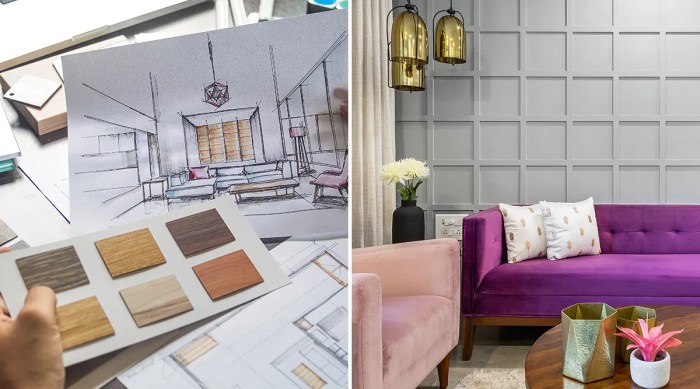Delving into the world of siding contractors near me, this introductory paragraph aims to pique the reader's interest by shedding light on the significance of these professionals in home improvement projects. From exploring different siding materials to navigating the process of finding the right contractor, this guide covers it all.
Importance of Siding Contractors
When it comes to home improvement projects, siding contractors play a crucial role in enhancing the overall aesthetics and functionality of a property. Their expertise and skills are essential in ensuring that your home's exterior is not only visually appealing but also well-protected from external elements.
Benefits of Hiring Professional Siding Contractors
- Expertise: Professional siding contractors have the knowledge and experience to recommend the best siding materials and installation techniques for your specific needs.
- Quality Workmanship: Hiring professionals ensures that the siding installation is done correctly and efficiently, reducing the risk of future repairs or replacements.
- Time-Saving: Siding contractors work efficiently to complete the project in a timely manner, allowing you to enjoy the benefits of your new siding sooner.
- Enhanced Curb Appeal: By choosing the right siding color and style, siding contractors can significantly enhance the curb appeal of your property, increasing its value and attractiveness.
Examples of How Siding Contractors Enhance Curb Appeal
One of the key ways siding contractors enhance curb appeal is by helping homeowners choose the right siding materials that complement the architectural style of their home. For example, a modern home may benefit from sleek and contemporary metal siding, while a traditional home could look stunning with classic wood siding.
Types of Siding Materials
When it comes to siding materials, there are several options available for homeowners to choose from. Each material has its own set of advantages and considerations, so it's important to understand the differences before making a decision.
Vinyl Siding
Vinyl siding is a popular choice due to its affordability and low maintenance requirements. It is durable, resistant to rot and insect damage, and comes in a variety of colors and styles. However, extreme temperatures can cause vinyl siding to warp or crack over time.
Wood Siding
Wood siding offers a natural and traditional look to a home. While it is aesthetically pleasing, wood siding requires regular maintenance such as staining or painting to prevent rot, mold, and insect infestations. It may also be more susceptible to fire damage compared to other materials.
Fiber Cement Siding
Fiber cement siding is a durable and versatile option that can mimic the look of wood or stucco. It is resistant to fire, insects, and rot, making it a low maintenance choice for many homeowners. However, fiber cement siding can be heavier and more expensive to install compared to other materials.
Metal Siding
Metal siding, such as aluminum or steel, is known for its strength and longevity. It is resistant to fire, rot, and insects, making it a low maintenance option for homeowners. However, metal siding can dent easily and may require repainting over time to maintain its appearance.
Finding the Right Contractor

When it comes to finding the right siding contractor for your project, there are several key factors to consider. From checking credentials to obtaining quotes, here are some important tips to keep in mind.
Research Local Contractors
- Start by researching local siding contractors in your area. Look for companies with a good reputation and years of experience in the industry.
- Check online reviews and testimonials to get an idea of the quality of work and customer satisfaction.
Check Licenses and Insurance
- Ensure that the contractor you choose is licensed and insured. This is crucial for your protection in case of any accidents or damages during the project.
- Ask for proof of insurance and verify their license with the appropriate authorities.
Obtain Multiple Quotes
- Reach out to several siding contractors and request detailed quotes for the work you need done. Make sure the quotes include materials, labor costs, and any additional fees.
- Compare the quotes carefully and consider the overall value, not just the price. Look for contractors who offer quality work at a fair price.
Cost Factors to Consider
When planning a siding project, it is essential to consider various cost factors that can influence the overall price. Understanding these factors can help you budget effectively and negotiate pricing with siding contractors.
Size of the Property
The size of your property is a significant factor that affects the cost of a siding project. Larger properties will require more materials and labor, resulting in higher overall costs. It is essential to accurately measure the square footage of your home to get an estimate of how much siding you will need.
Choice of Materials
The choice of siding materials also plays a crucial role in determining the cost of the project. Different materials have varying price points, with options like vinyl, wood, fiber cement, and metal each coming at different price ranges. Consider the durability, maintenance requirements, and aesthetic appeal of each material when making your selection.
Labor Costs
Labor costs are another significant factor to consider when budgeting for a siding project. The expertise and experience of the siding contractors will impact the overall cost, as well as the time it takes to complete the project. It is essential to get multiple quotes from reputable contractors and compare their pricing to ensure you are getting a fair deal.
Negotiating Pricing
When working with siding contractors, don't be afraid to negotiate pricing to get the best deal possible. Ask for a detailed breakdown of the costs, including materials, labor, and any additional fees. Be transparent about your budget and discuss any areas where you may be able to save money without compromising on quality.
Remember that communication is key to reaching a mutually beneficial agreement with your contractor.
Installation Process
Installing new siding involves several key steps that are crucial to ensure the durability and aesthetic appeal of your home. Proper preparation and installation techniques are essential to achieving the desired results and avoiding potential issues down the line.
Preparation
- Before the installation process begins, the existing siding must be removed carefully to assess the condition of the underlying structure.
- Any damaged or rotted areas on the walls must be repaired to provide a solid foundation for the new siding.
- Proper insulation and moisture barriers should be installed to enhance energy efficiency and protect against water damage.
Installation Techniques
- The siding panels should be installed following the manufacturer's guidelines and recommendations to ensure a proper fit and finish.
- Proper fastening techniques, such as nailing or screwing, should be used to secure the siding in place and prevent it from shifting or coming loose.
- Sealing and caulking should be applied at joints and corners to prevent water infiltration and improve the overall weather resistance of the siding.
Potential Challenges
- Uneven walls or surfaces may require additional preparation to ensure a smooth and even installation of the siding.
- Dealing with intricate architectural details or irregular shapes on the exterior of the home may pose challenges during the installation process.
- Weather conditions, such as high winds or extreme temperatures, can impact the installation timeline and require adjustments to ensure quality workmanship.
End of Discussion

Wrapping up our discussion on siding contractors near me, we've unraveled the key aspects of their importance, the variety of siding materials available, and the process of selecting the right contractor for your project. Whether you're looking to enhance your property's curb appeal or simply in need of a siding upgrade, this guide equips you with the knowledge to make informed decisions.
FAQ Summary
What are the common siding materials used in construction?
Common siding materials include vinyl, wood, fiber cement, and metal, each offering different levels of durability and maintenance requirements.
How can I search for reputable siding contractors in my local area?
You can start by asking for recommendations from friends or neighbors, checking online reviews, and verifying licenses and insurance before making a decision.
What factors influence the overall price of a siding project?
The size of the property, choice of materials, labor costs, and any additional customization or preparation needed can all impact the total cost of a siding project.









